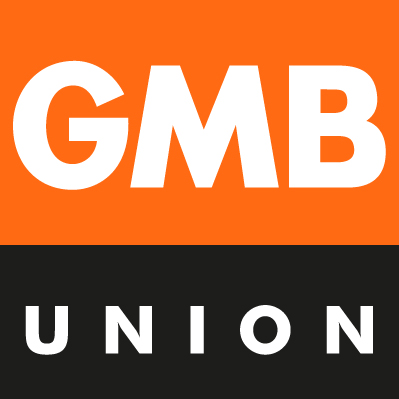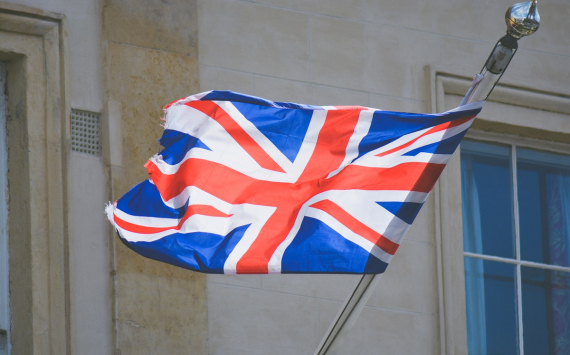Description
The GMB is a general trade union in the United Kingdom which has more than 600,000 members. Its members work in nearly all industrial sectors, in retail, security, schools, distribution, the utilities, social care, the National Health Service (NHS), ambulance service and local government.
Structural history
GMB originates from a series of mergers, beginning when the National Amalgamated Union of Labour (NAUL), National Union of General Workers (NUGW) and the Municipal Employees Association (MEA) in 1924 joined into a new union, named the National Union of General and Municipal Workers (NUGMW). Although the new union was one of the largest in the country it grew relatively slowly over the following decades; this changed in the 1970s when David Basnett created new sections for staff, and hotel and catering workers, and changed the union's name to the General and Municipal Workers' Union (GMWU) in 1974.
In 1982, following a merger with the Amalgamated Society of Boilermakers, Shipwrights, Blacksmiths and Structural Workers (ASBSBSW), the union was renamed the General, Municipal, Boilermakers' and Allied Trade Union (GMBATU). This was sometimes shortened to "GMB", which in 1987 became the official name of the union. For several years following the highly contested merger boilermaker members retained a distinct identity in GMB's Craft Section.
The union has absorbed the following smaller unions:
- 1924: Chatham Government Labourers' Union, St Helens Sheet Glass Flatteners' Trade Protection Society
- 1929: Cumberland Iron Ore Miners and Kindred Trades Association
- 1931: Cleveland Ironstone Quarrymens' Association, North Yorkshire and Cleveland Miners' Association
- 1933: Saw Grinders Trades Protection Society of Sheffield
- 1934: Amalgamated National Union of Quarryworkers and Settmakers
- 1935: Southern Counties Agricultural and Rural Workers
- 1936: National Society of Woolcombers and Allied Trades, Welsh Artisans' United Association
- 1938: Saw Handle Makers' Trade Society of Sheffield
- 1946: Aircraft Inspectors' Association, National Edge Tool Trade Society
- 1955: South Durham and North Yorkshire Salt Makers' Union
- 1957: National Cutlery Union
- 1958: British Airways Administrative Staffs Association
- 1962: Elastic Web Weavers' Union
- 1964: Amalgamated Union of File Trades, Ulster Transport and Allied Operatives Union
- 1965: Stoke Prior Salt Makers', Mechanics' and General Labourers' Union
- 1966: HM Stationery Staff Machine Association
- 1968: Scottish Metal Workers' Union, Scottish Operative Glaziers' Society, Wool, Yarn and Warehouse Workers' Union
- 1969: Union of Salt, Chemical and Industrial General Workers, Winsford Salt Makers
- 1972: Manchester Warehouse Employees Association, National Union of Waterworks Employees
- 1974: BSR Staff Association, National Pen Workers' Federation, United Rubber, Plastic and Allied Workers' Union
- 1975: Scottish Football Players' Union
- 1979: Coopers and Allied Workers' Federation of Great Britain
- 1982: Amalgamated Society of Boilermakers, Shipwrights, Blacksmiths and Structural Workers, Northern Ireland Professional Footballers' Association
- 1983: Scottish Lace and Textile Workers' Union
- 1986: Amalgamated Textile Warehouse Operatives (two branches), Amalgamated Textile Workers' Union (plus eight affiliates)
- 1988: Greater London Staff Association
- 1989: Association of Professional, Executive and Computer Staff, Association of Professional Music Therapists
- 1990: Legal Aid Staff Association, National Union of Labour Organisers
- 1991: Furniture, Timber and Allied Trades Union, National Union of Tailors and Garment Workers
- 1998: British Gas Managers' Association
- 2000: Managerial and Professional Officers
- 2002: International Union of Sex Workers
- 2007: General Union of Loom Overlookers
- 2008: Ambulance Service Union
- 2010: Community and District Nursing Association
- 2015: Unity
In 1992, the GMB for the first time allocated all of its members to one of eight industrial sections: clothing and textiles; commercial services; construction, furniture and allied; energy and utilities; engineering; food and leisure; process; and public services.
The GMB's sections were rationalised in 2006, with the union since then consisting of GMB Commercial Services, GMB Manufacturing, and GMB Public Services.
Thorne Credit Union
Thorne Credit Union Limited is a savings and loans co-operative established by the trade union for its members in 1998. Trading as TCU Money, it began life as GMB Lancashire Region Credit Union and was rolled out nationwide in 2000. TCU is named after Will Thorne, founder of NUGW forerunner, the National Union of Gas Workers and General Labourers and one of the first Labour Members of Parliament. The credit union is authorised by the Prudential Regulation Authority and regulated by the Financial Conduct Authority and the PRA. Ultimately, like the banks and building societies, members’ savings are protected against business failure by the Financial Services Compensation Scheme.
























